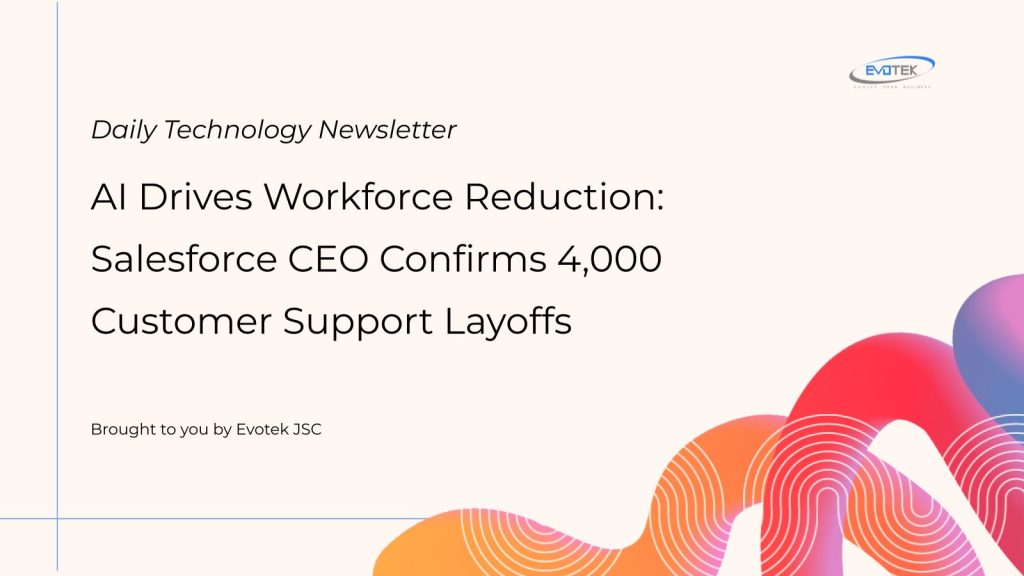Salesforce CEO Marc Benioff recently disclosed a significant reduction of 4,000 customer support positions, attributing the cuts directly to the growing efficiencies brought about by artificial intelligence (AI). This move underscores a broader shift within the tech giant, where AI is increasingly reshaping operational structures and workforce needs.
Benioff on AI’s Impact on Headcount
During an appearance on The Logan Bartlett Show podcast, Benioff revealed that the customer support division’s headcount has decreased from 9,000 to approximately 5,000. He candidly explained the rationale behind this reduction, stating, “I’ve reduced it from 9,000 heads to about 5,000, because I need less heads.” This direct statement highlights a trend where AI integration is leading to leaner workforces, particularly in customer-facing roles.
Salesforce’s ‘Agentforce’ and Operational Shifts
Salesforce has been at the forefront of AI adoption, deploying its own “Agentforce” – a system of advanced customer service bots. This strategic implementation has demonstrably impacted the company’s operational requirements. A statement from Salesforce emphasized, “Because of the benefits and efficiencies of Agentforce, we’ve seen the number of support cases we handle decline and we no longer need to actively backfill support engineer roles.” This indicates a fundamental shift from human-led problem-solving to AI-powered solutions.
The recent layoffs follow Benioff’s earlier announcement this past summer that AI was already handling up to 50% of the workload at the San Francisco-based company, signaling an accelerated integration of AI across its various functions.
Wider Implications: AI, Jobs, and Corporate Strategy
The implications of AI on employment extend far beyond Salesforce. Laurie Ruettimann, a seasoned human resources consultant, observed, “There have been layoffs all over America directly attributed to AI.” Ruettimann stressed the critical importance for professionals across industries to acquire new skills to remain competitive and employed in an evolving job market. She advised, “If your network could get you a job, it would have done it already. It would have done it yesterday. It’s on you to expand your vision, to expand your horizons and to meet new people.”
However, some analysts offer an alternative perspective on the recent tech sector layoffs. Ed Zitron, an industry analyst, suggests that while AI is often cited, many tech companies may be using it as a convenient explanation for workforce reductions that are actually a result of over-hiring during the pandemic boom. Zitron argues that companies are strategically presenting themselves as more efficient through AI to attract investors. “It’s just a growth at all costs mindset,” Zitron commented, adding, “The only thing that’s important is growth, even if it ruins people’s lives. Even if it makes the company worse and provides an inferior product.” This viewpoint introduces a critical lens on the motivations behind current corporate restructuring.
As companies like Salesforce continue to integrate advanced AI into their operations, the debate surrounding its impact on employment and the broader economy is likely to intensify, prompting both innovation and critical discussions about the future of work.

 日本語
日本語 한국어
한국어 Tiếng Việt
Tiếng Việt 简体中文
简体中文